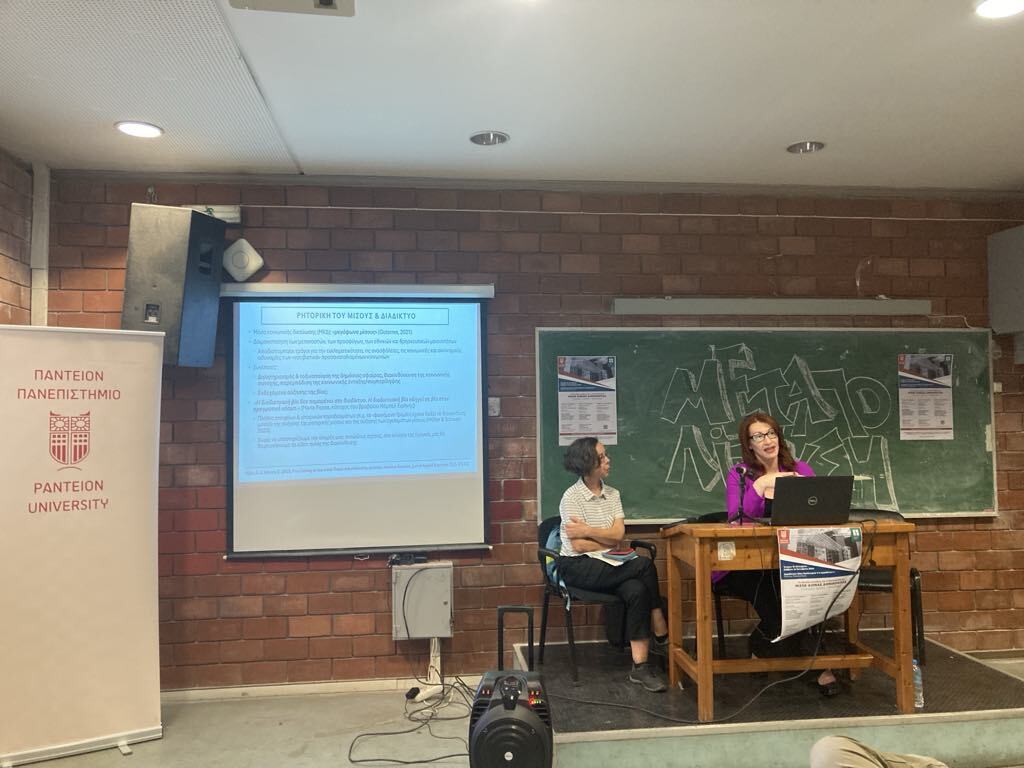
The #Metapolitefsi50 conference commemorated half a century of democratic transition in Greece, bringing together scholars, policymakers, and the public to examine the profound transformations in Greek society since 1974. With discussions on political communication, social justice, economic policy, and cultural evolution, the conference explored the achievements, challenges, and lessons from Greece's journey in democracy and highlighted critical pathways for the future.
In a compelling presentation, Maria Pontiki (Institute for Language and Speech Processing, Athena RC), Vasiliki Georgiadou (Panteion University & National Centre for Social Research), and Lambrini Rori (University of Athens) presented findings from their work in the DeMoLiSH Project (Detecting, Monitoring, and Linking online Hate Speech and offline Hate Crimes). Their research underscores the alarming rise of hate speech on Greek social media from 2015 to 2022 and its tangible impact on hate crimes and societal polarization.
Key Insights and Findings:
- Defining Hate Speech and Its Impact: The researchers explored hate speech as a complex, multifaceted issue, citing its threat to individual dignity, freedoms, and social cohesion. With origins often tied to race, religion, or ethnicity, hate speech dehumanizes targeted groups, encouraging hostility and divisiveness.
- Social Media’s Role as a “Megaphone”: Social platforms have become, as António Guterres termed them, “megaphones of hate,” amplifying xenophobic narratives. The study identifies groups that are frequently targeted, such as immigrants, Muslims, and refugees, who face online hostility that shapes public perceptions and increases marginalization risks.
- Distinctive Language and Stereotypes for Each Group: Each group targeted on social media was associated with specific negative stereotypes. Immigrants and refugees, for example, were framed as cultural and economic threats. Such messaging not only dehumanizes these communities but also supports discriminatory policies and behaviors.
- Connecting Online Rhetoric to Real-World Violence: Data gathered from Greek social media between 2015 and 2022 are analyzed for patterns of aggression and hate. The next step of our research will be to study the correlation between spikes in online hate and offline xenophobic attacks, emphasizing that social media hate rhetoric often spills over into real-world violence.
